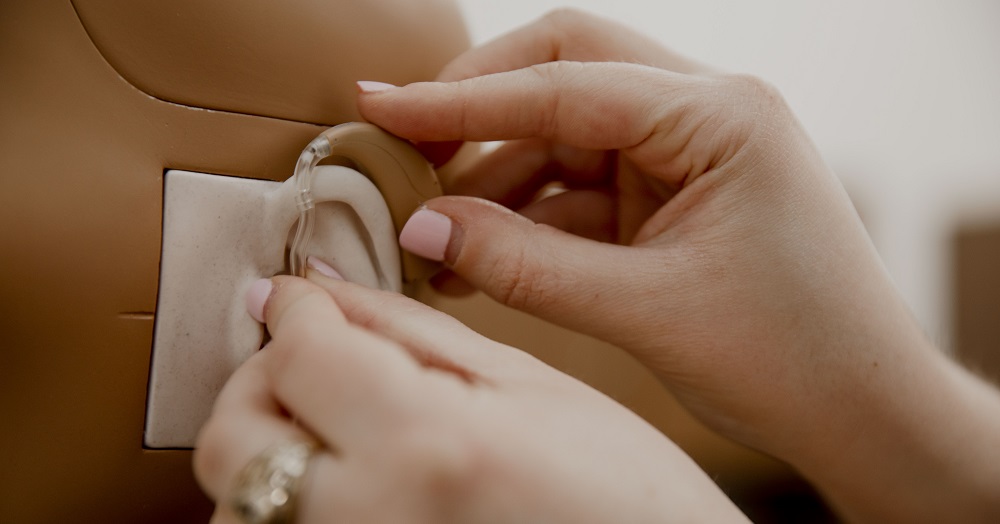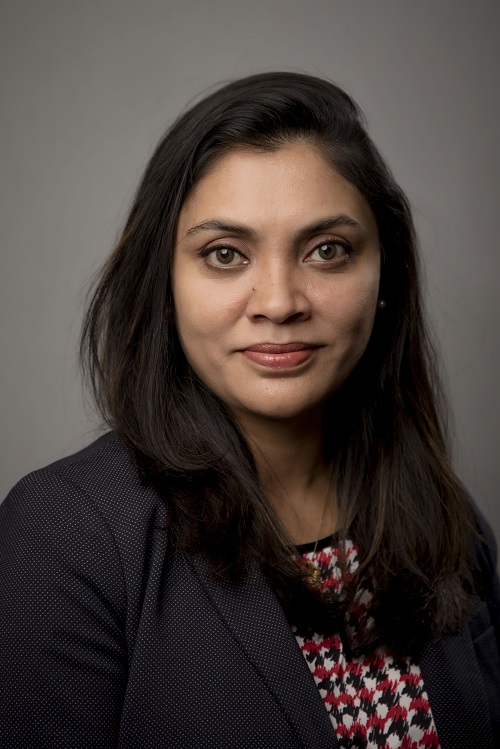How Social Media is Impacting Healthcare
Leaders at TTUHSC are working on using social media to enhance hearing healthcare.

Patients (and their parents) are now consumers who can receive information directly through social media
Social media has affected practically every industry across the globe, and healthcare is no exception. With so many people active on social media, the medical field has responded by incorporating it in a variety of ways.
While there are many benefits for physicians using social media, such as communicating with potential patients, there are many challenges as well.
We spoke with Moumita Choudhury Au.D., CCC-A, about the present and future of social media’s impact on healthcare in general and on hearing healthcare specifically.
Choudhury is an Assistant Professor in the Department of Speech, Language, and Hearing Sciences of the TTUHSC School of Health Professions.
Social Media: You Can’t Avoid It
“You may like it, you may hate it, but it is difficult to avoid it,” Choudhury says.
Choudhury begins by explaining that social media is here to stay and has gradually become an alternating social environment. This includes patients and students.
“I always go to my classroom, and I ask them to tell me one person who doesn't use social media,” she says. “Only one person has ever raised their hand.”
Choudhury says that we have yet to truly understand the impact of social media on hearing healthcare, but some other healthcare professions are further along in their understanding than others.
“Researchers working in cardiac health, depression, and mental illness have pioneered social media research and how it impacts their patient population,” she explains.
Choudhury is trying to change the scenario in hearing healthcare and conducts research to understand how people dealing with hearing impairment are impacted by social media.
Social Media and Hearing Healthcare
Audiologists treat patients across the whole span of ages, from birth to older adults. And, while children may not be the direct consumer using social media as a tool to find healthcare, their parents are.
Choudhury focuses mostly on patients who use hearing aids, typically aged 50 to 70. She cites a Pew Research Center report that says 64 percent of people aged 50 to 64 use social media, with the numbers increasing in younger ages.
“So, before they come to me in the clinic, I’m pretty sure they Google me,” she says. “Half of the people already know how I look before they come into the clinic.” And the place they are going to find providers is social media.
Social media platforms provide information about the provider that includes user ratings and reviews, waiting times, and physician education and credentials.
“I can’t blame them,” Choudhury says. “If I am going to see my dermatologist, I want to see where she went to school and does she have board certification? I’m pretty sure my patients are doing the same.”
The challenge we all face with social media is the problem of misinformation. Healthcare misinformation can come from fraudulent websites or news sources or from user posts and reviews. Choudhury assumes that as social media research gains popularity, laws, and regulations may be implemented for posting content on social media, but she also views this reality as evidence that providers should be aware of and involved in.
Who’s the Doctor Here?

Moumita Choudhury Au.D., CCC-A
Choudhury remembers a time 20 years ago as a new graduate student providing information about hearing aids.
“My patients did not know anything,” she says. “I was the most knowledgeable person in the room.”
The internet and social media have changed this.
“Right now, before I even start seeing them, they start asking for ‘that hearing aid that streams with my iPhone? I would like that one,’” she explains.
Choudhury admits that while she respects patient preference, sometimes it takes time to counsel against a product that may not be suitable for the patient. She says with a laugh, “I feel like saying, ‘I’m the audiologist here.’”
But her viewpoint has changed dramatically as she’s seeing how social media can also be used to improve quality of life in the patient population. There are many social networking sites, forums, and online groups that provide peer-to-peer support and information to individuals, caregivers, and families dealing with a disease/disorder. Such things were not easy to access just a decade back.
Patients coming in for a hearing aid these days are coming with information in hand. They use social media and numerous search engines to learn what options are available. Choudhury believes that providers should embrace this reality.
It’s important for healthcare providers to understand where their patients are coming from and what type of information they’re getting on social media to provide the best quality care. Choudhury recommends specific Facebook groups or Twitter accounts for patients to find others going through the same experience or for further research and support.
Choudhury is also interested to understand how social media impacts the mental well-being of young people with hearing impairment. Younger generations are the largest consumers of social media. While there are many studies that suggest that increased social media use causes depression and anxiety in youths, other studies reported that social media helps reduce loneliness.
Social Media’s Impact on OTC Hearing Aids
According to Choudhury, social media will have a big impact on the development of over-the-counter (OTC) hearing aids. Adults 18 and older with mild to moderate hearing loss will not necessarily have to see an audiologist to obtain a hearing aid.
Instead, they will be able to order some products online and then fit and program the device themselves. While Choudhury supports the movement to make hearing aids more accessible, she is in an understandable “wait and see” place for OTC hearing aids.
“I have patients who come in and don’t know how to connect their hearing aid with their iPhone,” she says. “So, this is going to be one of the big changes in social media and hearing healthcare, and we do not know which way it is going yet.”
No matter what happens, it’s clear that the influence of technology and social media on healthcare will continue to accelerate. And it’s vital that all of us follow Choudhury’s lead and strive for digital spaces based on accuracy, trust, and empathy.
Related Stories
The John Wayne Cancer Foundation Surgical Oncology Fellowship Program at Texas Tech University Health Sciences Center Announced
TTUHSC is collaborating with the John Wayne Cancer Foundation and has established the Big Cure Endowment, which supports the university’s efforts to reduce cancer incidence and increase survivability of people in rural and underserved areas.
Making Mental Health a Priority in the New Year
Sarah Mallard Wakefield, M.D., a psychiatrist with Texas Tech Physicians, talks about strategies to combat widespread and growing anxiety.
TTUHSC Dean to be Inducted into the National Academies of Practice as Distinguished Fellow
Gerard E. Carrino, Ph.D., MPH, dean of the TTUHSC Julia Jones Matthews School of Population and Public Health, will be inducted into the National Academies of Practice (NAP) as a Distinguished Fellow of the Public Health Academy.
Recent Stories
The John Wayne Cancer Foundation Surgical Oncology Fellowship Program at Texas Tech University Health Sciences Center Announced
TTUHSC is collaborating with the John Wayne Cancer Foundation and has established the Big Cure Endowment, which supports the university’s efforts to reduce cancer incidence and increase survivability of people in rural and underserved areas.
TTUHSC Receives $1 Million Gift from Amarillo National Bank to Expand and Enhance Pediatric Care in the Panhandle
TTUHSC School of Medicine leaders accepted a $1 million philanthropic gift from Amarillo National Bank on Tuesday (Feb. 10), marking a transformational investment in pediatric care for the Texas Panhandle.
Texas Tech University Health Sciences Center Permian Basin Announces Pediatric Residency Program Gift
TTUHSC Permian Basin, along with the Permian Strategic Partnership and the Scharbauer Foundation, Feb. 5 announced a gift that will fund a new pediatric residency.
